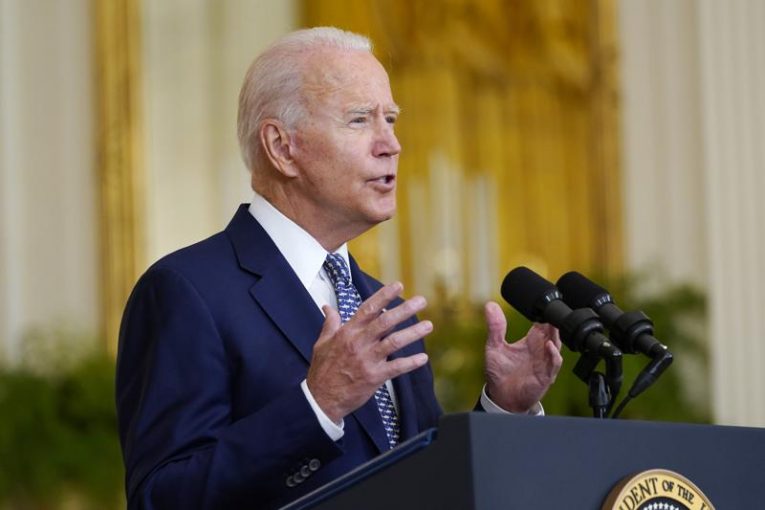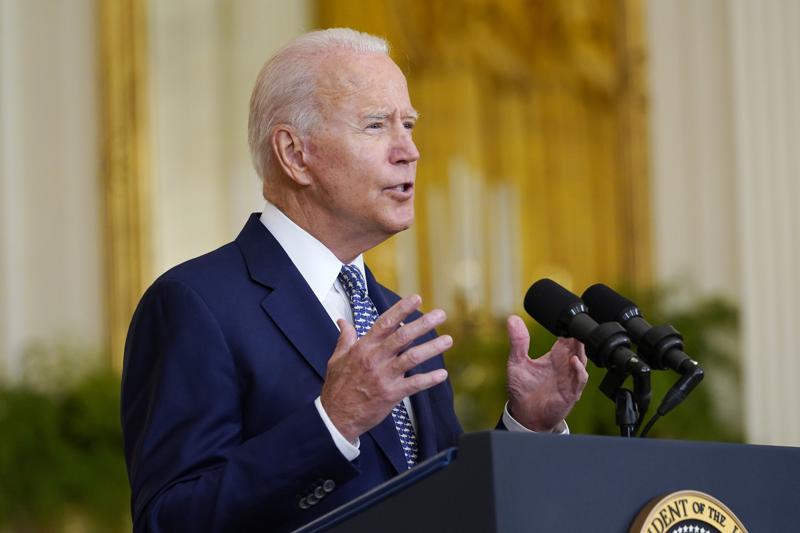

By Clarissa Rios and Sophia Barberini
WASHINGTON DC – Former Democratic U.S. Senator of Wisconsin Russ Feingold and former Republican U.S. Attorney for Utah Brett Tolman are calling on President Joe Biden to halt the death sentences of those on federal death row after Trump Attorney General Bill Barr reinstated the federal death penalty.
Feingold and Tolman contend the rise of social media has facilitated a “left-right binary” that polarizes much of the county, allowing people to filter their news intake so that they only see what that which they agree.
This polarization, argue Feingold and Tolman, “has created a false narrative around the death penalty that relies on simplistic and over generalized notions of our country’s partisan divide.” The narrative disregards those voices that express concerns towards the death penalty and how it operates in the country, they said.
Feingold was a Democratic U.S. Senator from Wisconsin, a state that ended the death penalty in 1853, while Brett Tolman was a Republican-appointed U.S. attorney in Utah, a state that continues to implement the death penalty.
Despite their political party differences, both Feingold and Tolman are vocal in their opposition when former AG Barr decided to reinstate the  federal death penalty and when Trump did not consider clemency in cases where “questions of competence and sufficiency of evidence were substantial.”
federal death penalty and when Trump did not consider clemency in cases where “questions of competence and sufficiency of evidence were substantial.”
Because the institution of the death penalty can change based on who the President and attorney general is, there can be multiple inconsistencies in how the death penalty is administered, they note, adding “This defies the very essence of the constitutional aim of equal protection under the law.”
As the Supreme Court and Congress have been slow to take any action on the federal death penalty, Tolman and Feingold are calling on President Biden to “use his constitutional authority to commute the death sentences of many, if not all of those on federal death row to appropriate terms in prison.”
Though the death penalty has been framed as a partisan issue, the Trump administration’s “unprecedented executions in the face of serious constitutional or evidentiary concerns” in some instances led to mass bipartisan backlash, they said.
This backlash, from judges, victim’s family members, and religious leaders, stemmed from the fact that in many of these cases, those on federal death row claimed intellectual disability, racial, bias, and prosecutorial misconduct that had never been addressed.
Biden has been vocal in his opposition to the death penalty and Attorney General Merrick Garland has recently instituted a moratorium on federal executions. This has received widespread bipartisan support as more people call on Biden to reduce all federal death sentences.
Feingold and Tolman contend that the death penalty is no longer the bipartisan issue it used to be, as 60 percent of those in the U.S. prefer life without parole to the death penalty, and only 36 percent of people prefer the death penalty.
“People from a range of political, professional and faith perspectives recognize, as we do, that the death penalty has been a failed policy serving only to drain resources and undermine the confidence of a majority of the country in our justice system,” argue Feingold and Tolman.
Further, they insist the U.S. must continue to have conversations surrounding the death penalty that avoid the “our dated stereotypes of Democrats versus Republicans.”
Feingold and Tolman maintain “Biden can and should redress the entrenched unfairness to the inconsistent use of the federal death penalty by being willing to commute the sentences of those on federal death row.”

